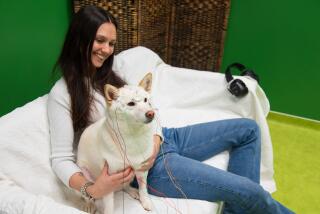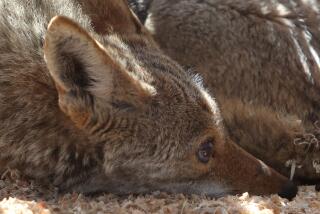Dogs’ interbreeding with wolves clouds lineage of man’s BFF

A new study says genomic analysis shows dogs and wolves diverged from a common wolf-like ancestor 11,000 to 16,000 years ago, although repeated interbreeding between the animals has clouded their evolutionary history.
The study, published in the journal PLOS Genetics on Thursday, is the latest to argue that dogs were initially domesticated by hunter-gatherer humans, and not agriculturalists. The study authors assert that this initial domestication also occurred 11,000 to 16,000 years ago.
The topic of dog domestication, and just when it occurred, is a matter of heated debate among experts. In the new study, researchers said gene flow between domesticated dogs and gray wolves made it difficult to determine when exactly they split.
“Dog domestication is more complex than we originally thought,” said coauthor John Novembre, an associate professor in the Department of Humane Genetics at the University of Chicago.
Novembre and his colleagues said it was now clear that modern dogs did not descend from gray wolves. Instead, dogs and wolves evolved from a now-extinct wolf-like canid.
“The geographic origin of dogs is uncertain, with distinct lines of evidence supporting Southeast Asia, the Middle East, and Europe as potential domestication centers, and ruling out Africa, Australia and North America,” authors wrote.
Researchers arrived at their conclusion after sequencing the genomes of three wolves from Asia, the Middle East and Europe, and comparing them with the genomes of three dog breeds -- basenji, dingo and boxer -- as well as a golden jackal.
Researchers said the wolves were more closely related to one another than to the dogs, and vice versa.
The researchers also found differences among dog breeds and wolves in the number of amylase, or AMY2B, genes that help to digest starch.
Experts who have argued that dogs were domesticated in an agricultural setting say the gene was crucial to the process because it allowed the animals to eat agricultural waste.
“We find standing variation in AMY2B copy number in wolves and show that some breeds, such as dingo and husky, lack the AMY2B expansion,” authors wrote. “This suggests that, at the beginning of the domestication process, dogs may have been characterized by a more carnivorous diet than their modern day counterparts, a diet held in common with early hunter-gatherers.”







